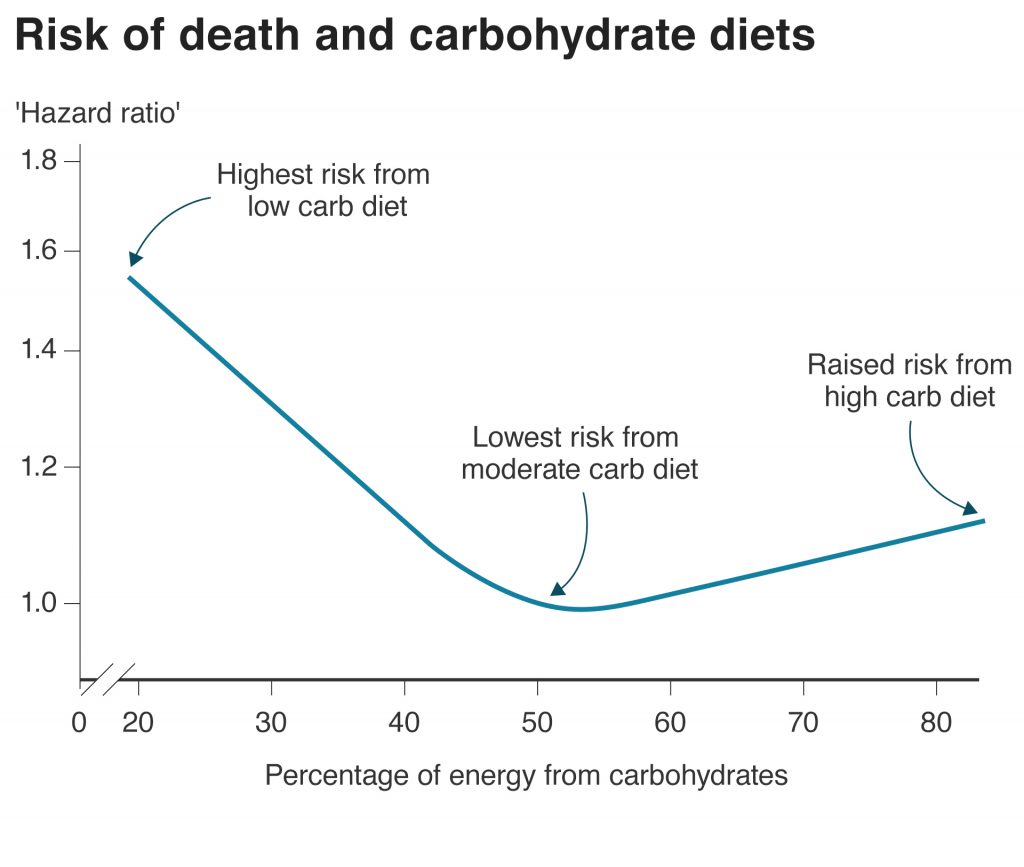Do Low-Carb Diets Increase Longevity?
The Lancet Public Health study found that both low-carb and high-carb diets are associated with increased risk of death.
Key Findings:
- Minimal risk was observed at 50-55% carbohydrate intake (moderate carb).
- People who ate moderate carbs (50-55% energy from carbs) lived 4 years longer than those who got 30% or less of their energy from carbs (ultra-low-carb) and 1.1 years longer than those who got 65% or more of their energy from carbs (high-carb).
- Source of nutrients is also an important factor in mortality. People who get their proteins and fats from plant-derived sources such as nuts, vegetables, and whole grains exhibit lower mortality.
- Interpretations and practical implications: Moderation is key. Limit carb intake to about 50-55% of total calories. When possible get fats and proteins from plant-based sources, including beans (high protein), avocados (fat), and nuts and seeds (high fat, moderate protein). Plants are also an excellent source of fiber and micronutrients (phytochemicals) not found in animal products.

Another study, published in the Annals of Internal Medicine from Harvard, found low-carb diet based on animal sources to be associated with higher all-cause mortality in both men and women. A vegetable-based low-carb diet, on the other hand, was associated with lower all-cause and cardiovascular disease mortality rates.
Robert Atkins himself, founder of the famous Atkins Diet, died at the age of just 72– six years less than the average U.S. life expectancy– despite his supposedly healthy diet. It should be noted that Atkins was hardly the only heath expert to live to an unimpressive age. James Fixx, Adelle Davis and Robert E. Kowalski are among the many famous health and fitness gurus whose own lifespans fell short of proving what they preached.